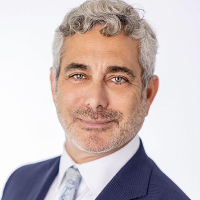 West River White Collar Crime Lawyers, Maryland
West River White Collar Crime Lawyers, Maryland
Sponsored Law Firm
-
 x
x

Click For More Info:
-
Roper & DiBlasio LLP
401 Headquarters Dr Ste 202 Millersville, MD 21108» view mapDivorce and Family Law Our Mission is Your Success
Roper & DiBlasio is a general practice law firm working within the local community to assist businesses, homeowners, and individuals with their legal needs.
800-785-7781
Sponsored Lawyers
1-10 of 13 matches
Criminal, DUI-DWI, Federal, White Collar Crime, Domestic Violence & Neglect
Craig Kadish is a seasoned criminal defense attorney dedicated to providing strong legal representation for individuals facing serious criminal charges. With a deep understanding of criminal law, he has successfully represented clients in a variety of cases, including child pornography (CSAM) offenses, homicide, drug conspiracy crimes, rape and sexual offenses, and federal weapons charges. His experience extends to both state and federal courts, where he consistently works to protect his clients' rights and achieve the best possible outcomes. Mr. Kadish knows that facing criminal charges can be overwhelming, especially for those who are unfamiliar with the legal process. He is committed to guiding clients through each step of their case, offering compassionate support while delivering meticulous attention to detail in building a defense. Whether dealing with accusations related to the receipt or distribution of child pornography, federal drug conspiracy crimes, or protective orders, Mr. Kadish handles each case with care and diligence. After earning a Bachelor of Arts from The George Washington University, Mr. Kadish went on to receive his Juris Doctor from the University of Maryland Francis King Carey School of Law. He is licensed to practice law in Maryland and has built a reputation for his dedication to legal ethics and his passion for criminal law. In addition to his practice, Mr. Kadish regularly contributes to the legal community by lecturing on criminal law topics and serving as a mock trial judge at the University of Baltimore School of Law. For personalized and effective legal representation, contact Craig Kadish today at (410) 837-0020 or complete his online contact form. Whether you are facing charges in a state or federal court, Mr. Kadish will provide the guidance and defense you need to navigate this challenging time.
(more)Criminal, DUI-DWI, Felony, Misdemeanor, White Collar Crime
With over a decade of experience representing more than 10,000 defendants, Mr. O’Brien brings a wealth of courtroom expertise to each client. He has successfully defended hundreds of individuals in criminal trials across Maryland’s District and Circuit courts. His deep knowledge of criminal law allows him to handle complex cases with precision, ensuring every client receives skilled representation. Mr. O’Brien’s legal career began at the University of Baltimore School of Law, where he excelled academically and gained invaluable experience in criminal law. He clerked for one of Maryland’s leading criminal law experts, Professor Byron L. Warnken, and participated in the Appellate Practice Clinic, where he argued a criminal appeal before the Appellate Court of Maryland. These early experiences sharpened his ability to navigate the intricacies of criminal defense. After passing the bar in 2010, Mr. O’Brien served as an attorney with the Office of the Public Defender, where he handled a heavy caseload with professionalism and skill. Over the years, he has developed defense strategies for a wide range of criminal charges, such as criminal law, sex crimes, harassment, and weapons crimes, consistently striving to achieve the best outcomes for his clients. To schedule your free consultation with the Towson Criminal Defense Lawyer, please call our office at 858-523-8423.
(more)


 Kurt Roper Millersville, MD
Kurt Roper Millersville, MD Practice AreasExpertise
Practice AreasExpertise


